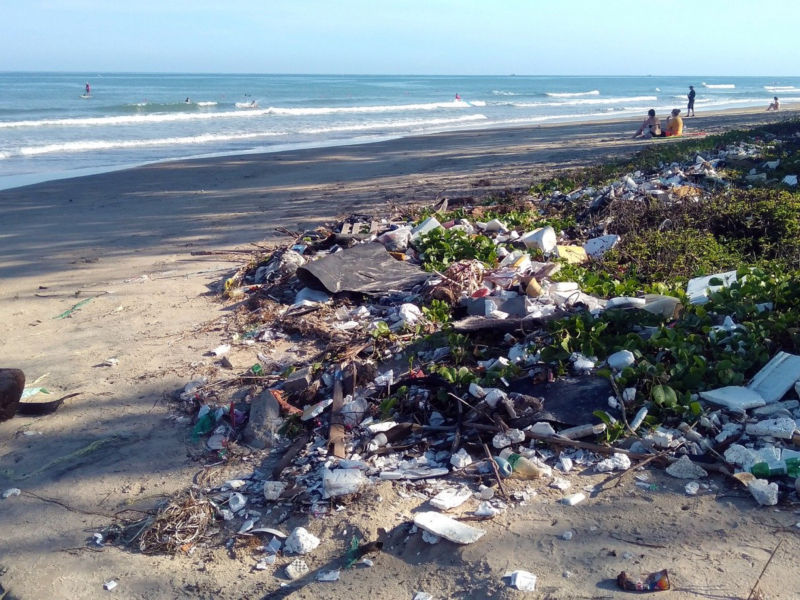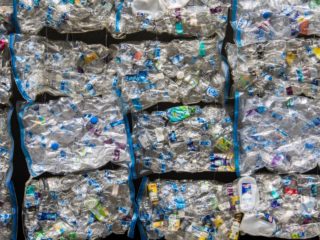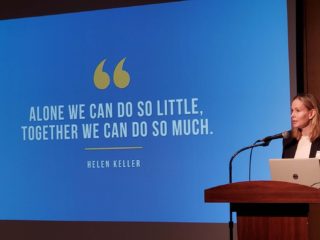We are all addicts. Addicts of single-use plastic, that is. Most of us know about the polluting effects of continued disposable plastic use. We’ve seen the heartbreaking photos of wildlife choking on plastic straws, caps, and plastic bags. We may even have experienced flooding caused by plastic-clogged waterways. But the craving for convenience is relentless and plastic production continues.
As we struggle to overcome mounting piles of plastic waste, we face a new onslaught of plastic production that risks plummeting our planet into a deeper environmental crisis.
The Plastic Pollution Problem
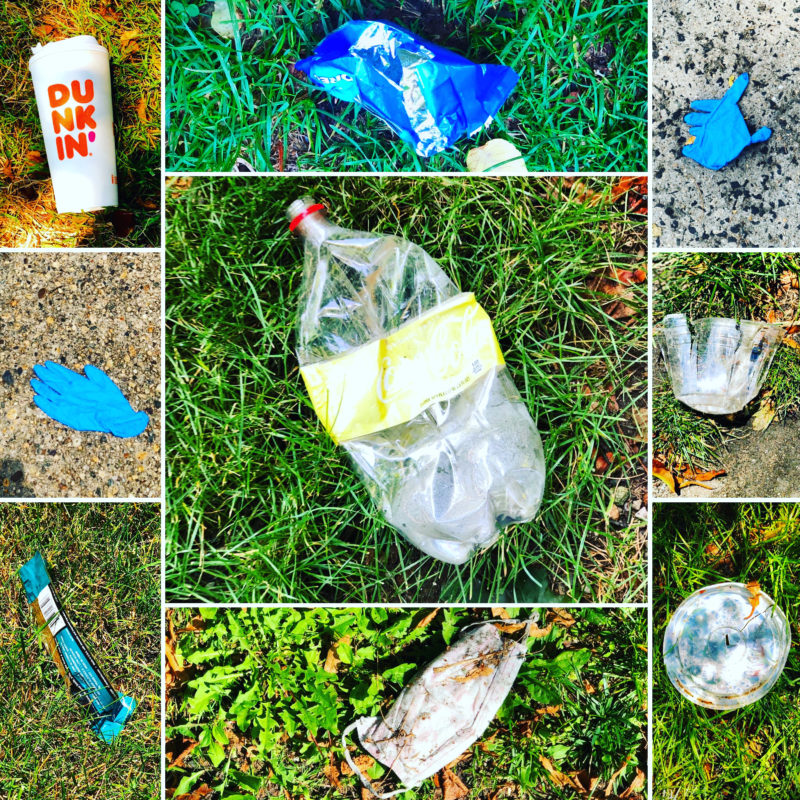
The plastic pollution problem is catastrophic. Despite herculean efforts by environmental groups and activists to stem the tide of plastic waste, the ceaseless churning out of new plastic negates any progress. By some estimates, even with concerted and immediate action, 710 million metric tons of plastic will enter the environment in the next two decades.
The recent pandemic hasn’t helped the situation. As people search for ways to stay safe, the plastic industry has seized the opportunity to exploit health fears by vilifying reusable bags and other items while making exaggerated claims about the hygiene benefits of single-use disposable products. The industry’s successful PR campaign has paid off with many legislative bodies and businesses responding to hygiene fears by eliminating restrictions on plastic bag and single-use plastic usage.
Adding to the explosion in plastic pollution is the new kid on the block: disposable PPE in the form of masks, gloves, and protective gear. PPE litter can be found everywhere. Just a short walk down the street from my home yields a wide array of disposable masks and gloves. A more scientific assessment was conducted by researchers at University College London who calculated that if every person in the UK used a disposable mask each day for a year, it would generate a whopping 66,000 metric tons of plastic waste and create ten times more climate change impact than using reusable masks.
What about recycling as a solution to all this plastic waste? Recycling can’t cope with the sheer volume of waste and many types of plastic, including plastic straws, bags, packaging, and styrofoam, are extremely difficult to recycle. Compounding the problem of the recycling process is the limited demand for these products. The market for recycled plastic has plummeted in recent years due to China’s policy of barring imports of recyclables. To make matters worse is public confusion about how to recycle right.
All this adds up to a dismal report card for recycling as a solution to plastic waste. A mere 9% of plastic is recycled and the vast majority of the roughly 8.3 billion metric tons of plastic ever produced has either ended up in landfills, been incinerated, or left to pollute our environment.
The Fossil Fuel Industry’s Crisis
As we grapple with plastic pollution’s environmental nightmare, the fossil fuel industry is facing its own crisis. With overproduction causing a supply glut, the industry has witnessed plummeting prices in operations. Chevron and Exxon recently posted staggering losses while BP and Royal Dutch Shell have been forced to write off billions of dollars in fossil fuel assets as they contend with depressed demand.
Amidst the struggle to find markets for their products, the industry has been hit with a number of legal setbacks, most notably related to gas pipeline production. And then there’s growing competition from the renewable energy sector as utilities switch from natural gas to increasingly price-competitive solar and wind generation. The pressure to switch will only intensify as legislatures demand low-carbon modes of power generation.
The pandemic has only added salt to the wound as transportation use has fallen in all sectors. All in all, it has been a tough road recently for Big Oil and current conditions have forced the industry to seek new sources of revenue.
Big Oil’s Lifeline: Plastics
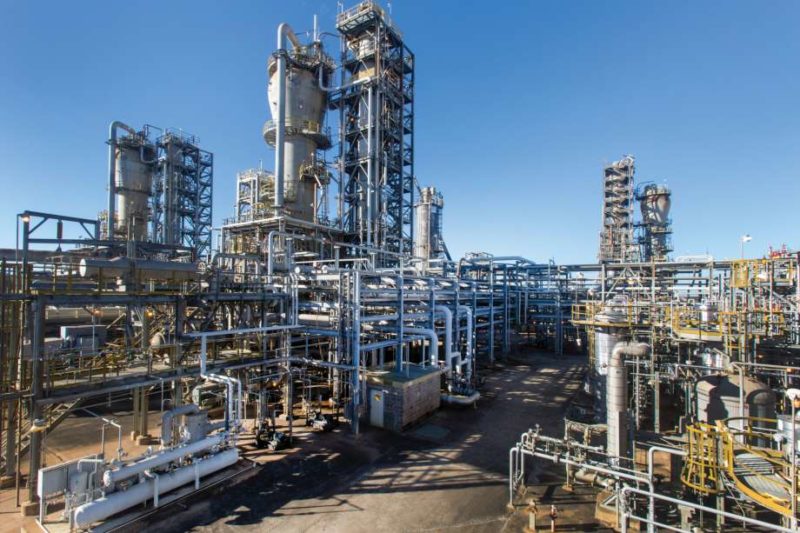
So is there a future for Big Oil? Yes, and it’s plastics.
Plastic is derived from natural gas. By employing intense heat to the gas in an ethane cracker plant that “cracks” ethane molecules, the building block of the petrochemical industry – ethylene – is formed, which is then be used to make, among other things, plastics.
Oil and gas companies are now seizing the opportunity to make a profit by redirecting cheap natural gas into plastic production. Construction of petrochemical plants is booming – more than 300 are planned in the near future, concentrated in Texas and Louisana, but more are slated for Pennsylvania, Ohio, and West Virginia. In fact, according to the World Economic Forum, plastic production is expected to double in 20 years and quadruple by 2060.
Along with this increased plastic production comes yet more pollution, not just in the form of plastic waste, but also air pollution and increased greenhouse gas emissions. Ethane cracker plants are super polluters that spew out a whole host of pollutants, including nitrogen oxides, sulfur dioxide, and volatile organic compounds. In Louisiana, the ironically named “Sunshine Project” petrochemical complex is slated to pump 13.6 million tons of carbon dioxide into the atmosphere every year; equivalent to adding 2.6 million cars to the road each year.
What Can You Do to Curb Plastic Production?
So now you know: plastic production is poised for an aggressive expansion in the coming years. What can you do about it? There’s no perfect solution to solving our plastic pollution problem, but all of us can take steps to help reduce plastic usage and waste.
While recognizing that you have the ability to make a difference, also understand that most of the blame rests with the plastic producer, not the consumer. Plastic production companies must be held accountable for the life cycle impacts of their products. One of the most effective ways to effect change is to vote! Vote in political elections by choosing candidates with strong records for environmental protection, but also vote with your wallet by refusing to buy products that use excessive plastic.
It may seem that our efforts are futile, but change is happening: companies are responding to consumer rejection of single-use plastic. The most recent example is Evian’s announcement of their new 100% recycled plastic bottle that comes without a label, and businesses are responding to consumer demand for more sustainable, waste-free products.
In addition, environmental advocacy efforts are paying off with the recent legal successes and with the enactment of “green” legislation across the nation, most recently with grassroots groups’ contributions to NY State’s groundbreaking climate action law and California’s proposed Circular Economy and Plastic Pollution Reduction bill.
Yes, more needs to be done. Much more. But continued and persistent advocacy and activism do make a difference, along with personal lifestyle changes that reduce our dependence on single-use plastic.

